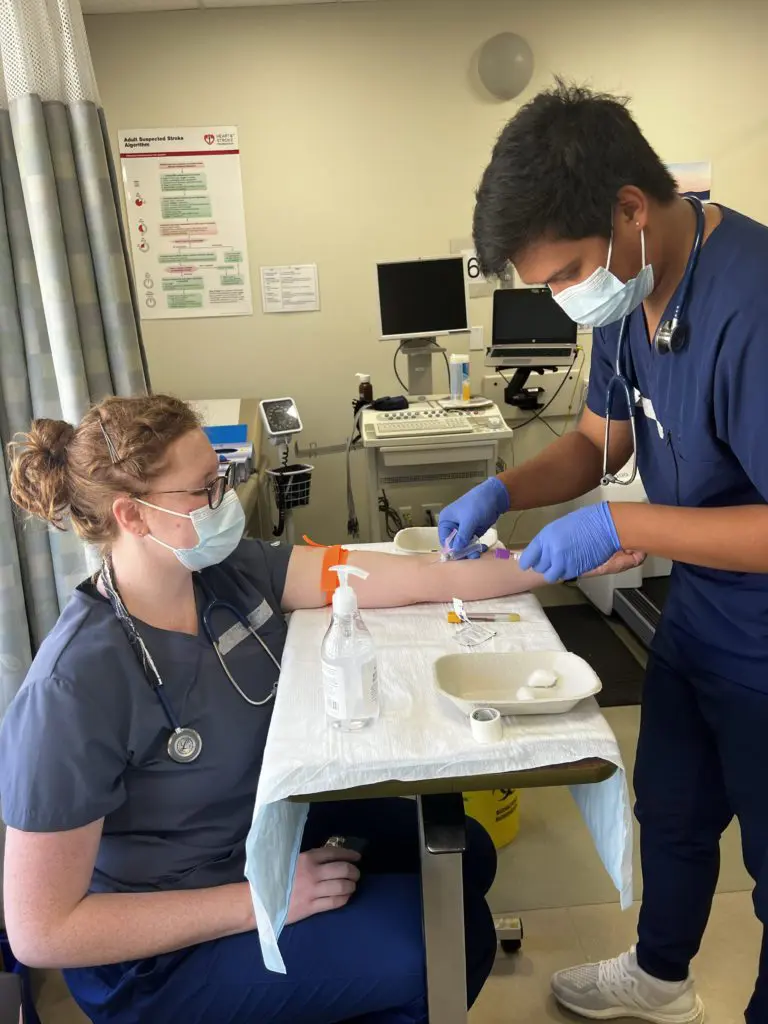Hi there, folks! I hope you had a great holiday break. For this blog, I will reflect on “Student Life” – a term that can evoke many thoughts and feelings and yet so recognizably encapsulates the experiences of anyone continuing their education. Whether you’re brand new to campus or a seasoned academic, going to school and getting back into the swing of things in the classroom (whether virtual or in-person) can be daunting, especially if you’re also balancing other responsibilities and commitments.
The balance of work-life balance

School can be stressful, amplifying the mental barriers of those with anxiety or the average worrywarts. Some students seem to breeze through school effortlessly, always having a handle on their schedules and deadlines. I have identified with both but often leaned towards procrastination with a sprinkle of a worrywart. Throughout my education, I always worked at least a part-time job, which sometimes makes me feel like I’m falling short in the endless pursuit of a good “school-work-life balance.” It’s a phrase that often gets tossed around, but sometimes we don’t stop to think about how to take ownership of our schedule, responsibilities, and opportunities.
I had to become reflective and honest to overcome procrastination when starting Cardiology Technology, an intensive program. I developed strategies to work with and not against me to succeed in school while still working part-time (and maintaining my sanity).
Top 10 tips for student success and balance
While everyone’s lives and education journey differ, I’d like to share some thoughts and (hopefully helpful) tips about how I manage studying and working and still feel like I’m achieving success!

- Create a quiet and clutter-free study space to promote good focus. While it’s good to have your desk stocked with easily accessible materials and writing utensils, too much stuff can cause distractions. Keep a study space tidy with a small recycling bin nearby, never letting dirty dishes pile up, and use pen and magazine holders to contain stationery, manuals, and notebooks. My favourite touches to my desk are a small house plant and keeping a cozy blanket handy!
- Set short and long-term goals. Take some time to reflect on your values, your outcome, and the steps it will take to get there. Identify what motivates, inspires, and excites you, and use that spirit to guide you on your journey. Revisit goals at meaningful intervals to evaluate if you are meeting or exceeding what you have set out to do! Become familiar with your motivations, and if plans change, that’s okay too – just decide how to adjust your goals accordingly.
- At the beginning of each course, fill out a calendar to include all deadlines and due dates for exams, assignments, projects, and quizzes to plan and stay accountable for the time spent on each one. Setting smaller goals helps you stay on track, while larger goals keep the big picture in mind. It’s also very satisfying to cross things off the “To-Do” calendar when completed!
- Keep in tune with your schedule and track classes, shifts, commitments, appointments, and social engagements in one calendar. Some prefer a phone calendar, while others prefer a day planner. Stay committed to your choice so you don’t forget anything important!
- Reflect on your preferred learning styles, create strategies and study tools, and effectively hone your study habits. Regardless of your learning style, find the best strategies and tools to keep you engaged, and stick with them!
- Are you a visual learner? Create flow charts, tables, or “mind maps” to summarize a topic. Do bright colours hold your attention? Colourful pens or highlighters from the dollar store can spruce up notes. Make your notes portable using cue cards with key terms and concepts on paper or free apps such as Quizlet.
- Social butterfly? Connect with classmates to create a study group to test your knowledge and exchange study strategies.
- Are you an audio learner? Record your study notes in audio files to listen to while doing chores, exercising, or commuting. If you’re struggling with paying attention during online lectures, start taking handwritten notes to stay attentive.
- Don’t be shy about asking your instructors for help. Connect with the instructor for help or clarification to gain confidence with the material after class, via email, or during office hours. Sometimes we fret and stew over things for so long that we become confused. Having the instructor help you get back on track can save wasted time and unneeded stress or worry.
- Don’t feel guilty about scheduling periodic breaks from studying. Learning can be mentally and physically exhausting, even if you are passionate about it! Scheduled breaks divide your workload into shorter, more manageable time blocks and allow your body and mind a quick rest to help you stay focused during studying. Consider leaving your desk and incorporating a few minutes of movement, like gentle stretching or a quick stroll, to help release back and shoulder tension that may have gone unnoticed while pouring over textbooks. Spending a few minutes away from screens can help reduce eye strain. Fresh air does wonders to clear the head!
- Don’t isolate yourself from your support network. Whether it’s your family, partner, or friends, it’s essential to have people in your corner to encourage you when you’re feeling down or celebrate when you succeed! While school is an important priority, it is beneficial to spend time with people you enjoy maintaining strong social connections and fostering feelings of happiness.
- Take steps to stay healthy, such as eating well, staying hydrated, exercising, and maintaining a consistent sleep schedule. As cliché as it sounds, you nourish your mind and body with everyday routines. Working hard at school or your job doesn’t mean you have to function feeling run down. If changing your habits all at once seems impossible, pick one thing you want to improve, and know that every little bit helps and adds to something greater.
- Mental health is just as important, if not more important, than physical health. Be honest if you are starting to not feel like yourself. Don’t put off asking for help. If you are struggling, sometimes confiding in a trusted friend or loved one helps temporarily, but in the long run, professional support and guidance can significantly benefit your mental health. Be courageous in advocating for yourself. Be brave and choose to access resources such as counselling services (a Student Success Coordinator can connect you with those resources).

Above all else, be kind to yourself. Recognize that your education is an investment in yourself, and you are worth it! Remember that you have accomplished so much. The best is yet to come! Give yourself permission to treat yourself and celebrate your successes and hard work. Finally, acknowledge it’s okay to do what you need to take care of yourself so that you can be at your best when tackling student life and whatever it brings.






![An ECG demonstrates the extensive antero-septal-lateral myocardial infarction [heart attack] that Taryn witnessed.](https://stenbergcollege.com/wp-content/smush-webp/2022/12/ecg-1024x530.jpg.webp)




